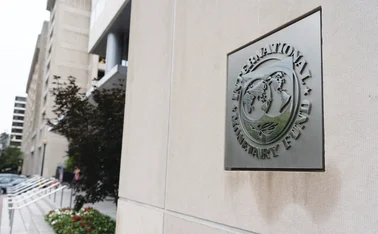
US policy is “ultimate risk” for emerging markets – panellists
Expert panel says US fiscal, trade and monetary policy all have the potential to cause trouble

The fate of many emerging markets is the hands of US policymakers, and particularly president Donald Trump, as US trade, fiscal and monetary policies threaten to send shockwaves across borders, panellists said today (March 10).
The threat of the US stepping back from the global negotiating table is the “ultimate risk for emerging markets”, said Erik Berglöf, a professor at the London School of Economics and Political Science (LSE), speaking at the LSE Emerging Markets Forum.
US policy has the potential to impact emerging markets via spillovers from fiscal spending and tighter monetary policy, deregulation of banks, and protectionist policies, panellists warned.
James Sweeney, chief economist at Credit Suisse, said proposals in the US House of Representatives for a tax on imported products and a subsidy on exports would – in theory – cause a “very large dollar rally”. He thought such an outcome likely, though others are sceptical of whether the theory would hold in practice.
A stronger dollar could put funding strains on banks and corporations in emerging markets, which have borrowed heavily in dollars. Another key consideration for the strength of the dollar is the path of Federal Reserve rate hikes, which look set to continue this year.
An important consideration is who will be chair of the Fed in a year’s time. It is hard to predict Fed policy until that question is answered, said Sweeney.
Though Trump is expected to replace Fed chair Janet Yellen when her term ends in January 2018, he is unlikely to appoint a hawk in her place, said Jean Boivin, head of economic and markets research at the BlackRock Investment Institute.
No elected politician – and especially not those with stimulus plans – has ever deliberately appointed a hawk, said Boivin, who was formerly a deputy governor at the Bank of Canada.
Indeed, though the risks of a severe shock are material, a few panellists noted some commentary seemed to go too far. Emerging markets managed well in past US hiking cycles, said Christian Déséglise, global head of central bank and reserve managers and global co-head of sustainable finance at HSBC.
Sweeney made a similar point. “The risks of capital flight may be overstated,” he said. On the one hand, rates are rising in the US, drawing capital away from emerging markets. But on the other, rates are rising due to strength in the US and global economies, which benefits emerging markets.
Only users who have a paid subscription or are part of a corporate subscription are able to print or copy content.
To access these options, along with all other subscription benefits, please contact info@centralbanking.com or view our subscription options here: http://subscriptions.centralbanking.com/subscribe
You are currently unable to print this content. Please contact info@centralbanking.com to find out more.
You are currently unable to copy this content. Please contact info@centralbanking.com to find out more.
Copyright Infopro Digital Limited. All rights reserved.
As outlined in our terms and conditions, https://www.infopro-digital.com/terms-and-conditions/subscriptions/ (point 2.4), printing is limited to a single copy.
If you would like to purchase additional rights please email info@centralbanking.com
Copyright Infopro Digital Limited. All rights reserved.
You may share this content using our article tools. As outlined in our terms and conditions, https://www.infopro-digital.com/terms-and-conditions/subscriptions/ (clause 2.4), an Authorised User may only make one copy of the materials for their own personal use. You must also comply with the restrictions in clause 2.5.
If you would like to purchase additional rights please email info@centralbanking.com








